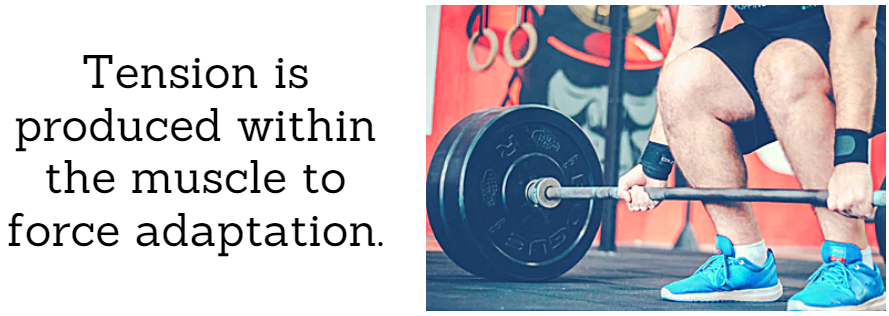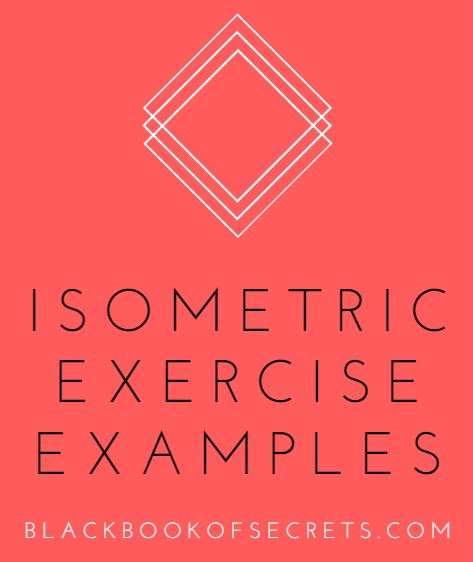Isometric exercises are frequently used in resistance training. These are weight training exercises during which there is absolutely no range of motion and no observable motion of the joint or muscle.
Benefits of Isometric Exercises
Executing concentric and eccentric contractions with muscular overload over the course of a 12 week program can lead to an impressive increase in muscle mass.
Isometrics are often done by holding a joint or muscle in a fixed position for ten seconds, performing several sets.
Muscle groups enter a state of contraction without repeated motion by pitting them in opposition to one another or requiring them to work against gravity – such as assuming a sitting-position against a wall.
How Isometrics Work
Tension is produced within the muscle to force adaptation. It is critical to maintain tension on the performing muscles while increasing the time under tension for every set.

Although there are several pieces of equipment that you find helpful for isometric routines at the gym, you are able to execute these exercises without machines, which makes it very easy to incorporate into any program.
The best way to utilize isometric exercise is to include it into a greater strength-training plan, such as overload training or body weight training. Isometric contractions provide amazing benefits, but it is very important be aware of the limitations.
Combining Isometric Contractions with Weight Training
To get the best effects, blend isometric workouts with normal weight training workouts to strengthen the muscles through their full range of movement.
- You are able to improve your strength in your upper body workouts by executing isometric pushups, pull-ups, curls and extensions.
- Much of the strength-training workouts gymnasts do are isometrics.
- A number of the strongmen from yesteryear employed isometrics within their power and muscle development programs.
- Can be utilized even in your face, helping to enhance the muscles accustomed to making facial expressions, eating, and speaking.
How the Tendons Benefit From Isometrics
The tendons react well to isometric contraction and become fortified. However, with the standard form of exercising with barbells and dumbbells, the muscles get stronger faster and the tendons tend to take longer.
How Isometrics Help the Joints
Isometrics are fantastic for older folks and individuals with injuries. If a person is affected with arthritis and it is uncomfortable to complete range of motion exercises, isometric workouts may help preserve durability in the joints and muscles while bypassing pain points.
If you have high blood pressure or other cardiovascular issues, speak with your doctor before kicking off your exercise regimen because, the increase in muscular tension can tax your system.
style=”font-family: bitter-regular;”>And lastly, Isometric exercises can be done wherever you like- many of our clients like to do them at work, or even walking around the park, getting a full body workout.
Isometric Exercise Examples

Providing muscle stimulation in a safe range of motion and does it in less time than a conventional workout. So what are the best static contraction exercises for muscle mass?
Best Static Contraction Exercises for Muscle Mass
As with conventional training the best exercises for building overall muscle are mult-joint exerices such as the deadlift, benchpress, leg press, etc. These exercises allow you to use the most weight, stimulate the largest amount of muscles at the same time and thus provide the greatest anabolic response from your body.
Many people often forget that six pack abs can be built purely with isometrics such as planks.
Quick and Easy Exercise Routine
If you want a basic routine that is quick and easy, but will still help you gain some muscle, here is a good one.
- 1. Leg Press, 5 sec. static hold (SH)
- 2. Toe Press, 5 sec. SH
- 3. Deadlift, 5 sec. SH
- 4. Benchpress, 5 sec SH
- 5. Pulldown (or Seated Row), 5 sec SH
Just with these five exercises you will provide enough stimulation to work your entire body and trigger amazing muscle gains. Remember that each exercise is only to be performed in your strongest range of motion. Only choose a weight that you can hold for around 5 seconds. If you can hold the weight longer then it is too light.
Warm Up Before Exercise
Remember to warm-up before you exercise. It might be good to do a warm-up hold with 50% of the weight you plan to use for each exercise. Also, be sure to use good form. Even though these exercises are done in the safest range of motion, if you use bad form you could easily injure yourself.
Static Holds
I prefer using isometric contractions because they give you the best results in the least amount of time. Take for example the workout previously shown. Add up all the static holds and you only have 25 seconds of actual exercise time. Imagine having a workout with only 25 seconds of muscle stimulation that triggers massive muscle growth!
Topics: Exercise, Isometric exercise, Strength training, Physical exercise, Recreation, Physical fitness, Rotator cuff. Physiology, Musculoskeletal system, Weight training, Human activities, Muscle, Self-care, Shoulder. Human body, Sports, Nervous system, muscle contraction, Athletic training, Breathing, Exercise physiology.


